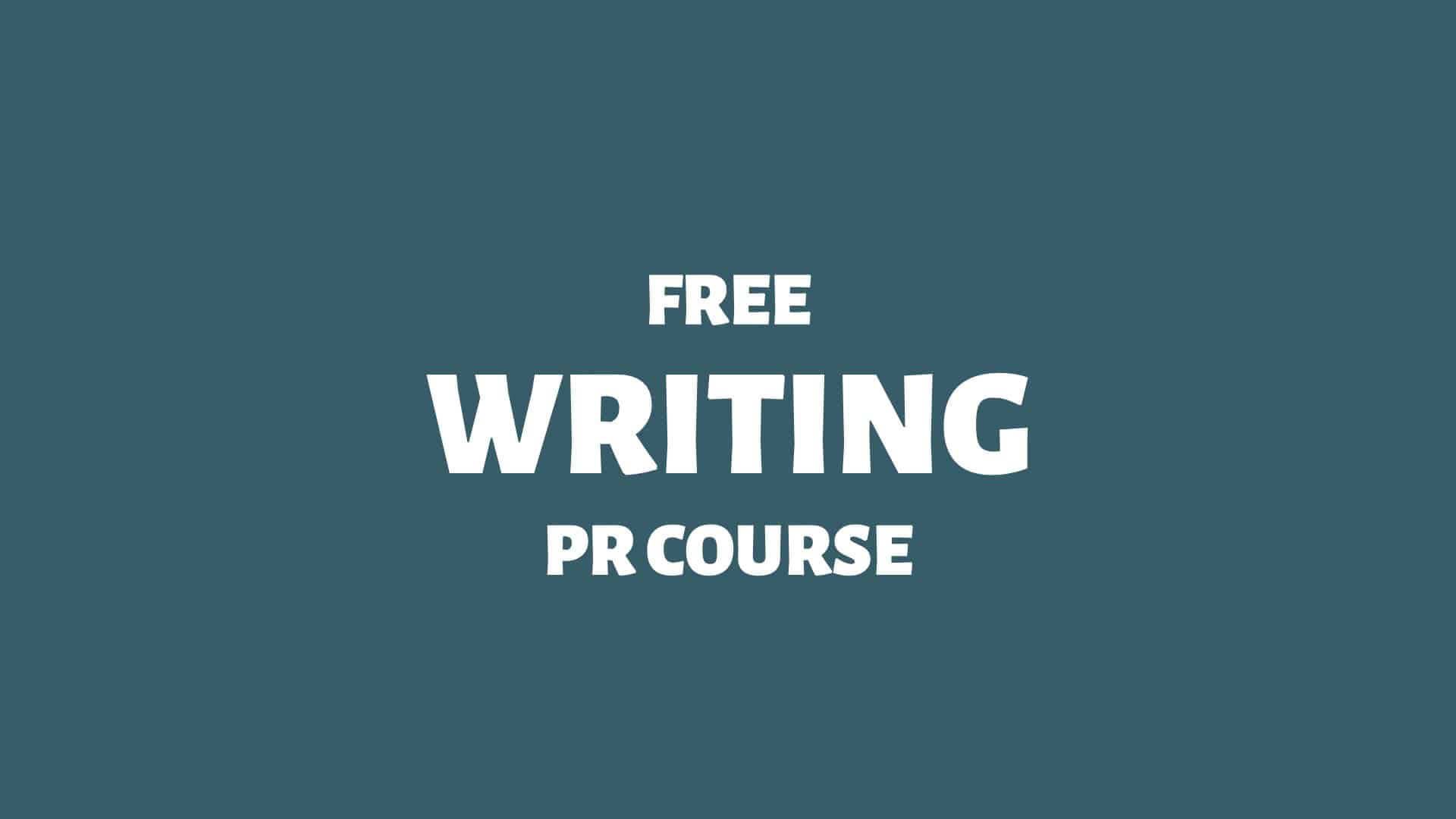Learn how to write well — and fast.
Putting things into words is a valuable public relations (PR) skill. If you can do that, you will always be helpful. No matter the situation.
Here we go:
Write Well, Write Fast
Spin Academy | Online PR Courses
Write Well, Write Fast
If you combine solid writing with speed, nothing will stop you.
But how do you get faster at writing? Most people make the mistake of overthinking every word. They carefully build word for word, sentence for sentence. The process can be painstakingly slow.
I propose this approach:
Get the first draft down, fast. Never worry about the details; that’s what the second and third draft is for. What’s important is to keep going without stopping. 1How To Write Faster (With Benefits and 14 Writing Tips) | Indeed.com. (2024, February 4). Indeed.com. https://www.indeed.com/career-advice/career-development/how-to-write-faster
Will your first draft be good?
No, it won’t. And that’s fine.
You’re not meant to be writing and revising at the same time. First you write, then you revise.
How To Write Well and Fast
I suggest these considerations for anyone aspiring to become a solid public relations writer:
Writing well and fast is a skill worth developing. Bonus: You’ll join a small but well-respected club of skilled — and fast! — public relations writers.
Learn more: Write Well, Write Fast
💡 Subscribe and get a free ebook on how to get better PR.

Communication Skill: Drafting
Spin Academy | Online PR Courses
Communication Skill: Drafting
Drafting, creating, and refining written documents are fundamental communication skills crucial in everyday life. From composing emails and writing reports to crafting personal letters or social media posts, the ability to draft and edit documents ensures clarity, coherence, and effectiveness in conveying messages.
“The first draft of anything is shit.”
— Ernest Hemingway
Many individuals struggle with writing not because they lack ideas but because they underestimate the power of revision. The initial draft is rarely perfect; it’s through revising this draft — transforming it into a second, third, or even fourth draft — that one hones the message, sharpens the language, and strengthens the overall communication.
Developing a habit of drafting and editing allows for exploring ideas, refining thought, and eliminating ambiguity, making the final product more impactful and understood by its intended audience.
To become better at drafting, consider these five tips:
Incorporating these strategies into your writing routine can elevate your drafting skills, leading to precise, compelling, and effective written communication in every aspect of your life.
Learn more: Communication Skills (That Everyone Should Learn)
💡 Subscribe and get a free ebook on how to get better PR.

The PAS Formula
Spin Academy | Online PR Courses
The PAS Formula
The PAS formula is simple: start with the problem, move on to agitate, and then offer a solution. It can serve as a helpful tool for stressed PR writers.
The PAS formula:
Learn more: The PAS Formula for PR Writers
💡 Subscribe and get a free ebook on how to get better PR.

PR Writing: Practice Formats
Make sure to learn how to write:
Being solid (and fast!) PR writer will be invaluable both to you and to others. It could even be the cornerstone of your PR career.

THANKS FOR READING.
Need PR help? Hire me here.

PR Resource: Free Writing PR Course
Spin Academy | Online PR Courses

Spin’s PR School: Free Writing PR Course
Discover the power of effective PR writing with this free Writing PR Course. Find tips and inspiration. Boost your skills and boost your career prospects today.
Public Relations Writing
PR Writing Inspiration
Learn more: All Free PR Courses
💡 Subscribe and get a free ebook on how to get better PR.

Annotations
| 1 | How To Write Faster (With Benefits and 14 Writing Tips) | Indeed.com. (2024, February 4). Indeed.com. https://www.indeed.com/career-advice/career-development/how-to-write-faster |
|---|


